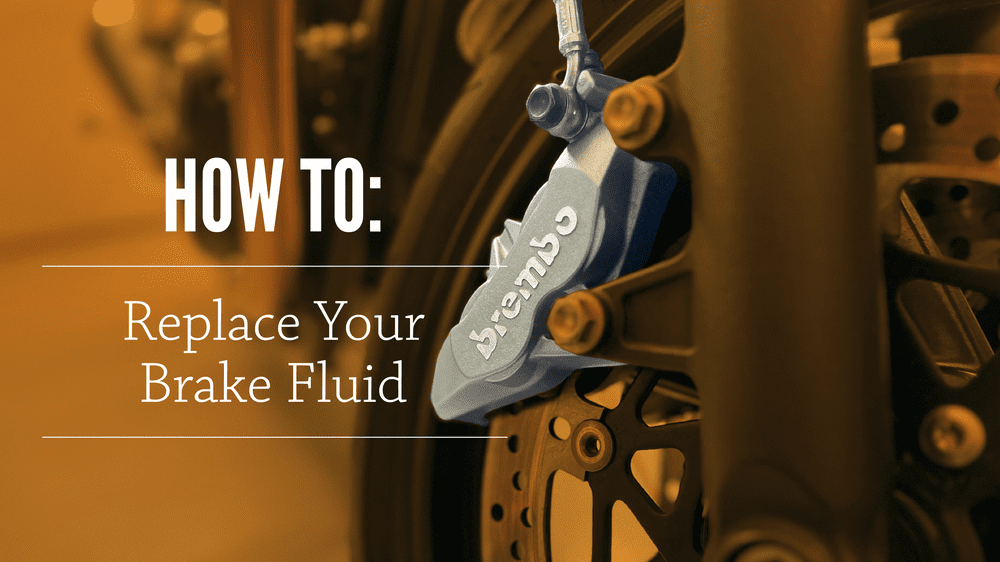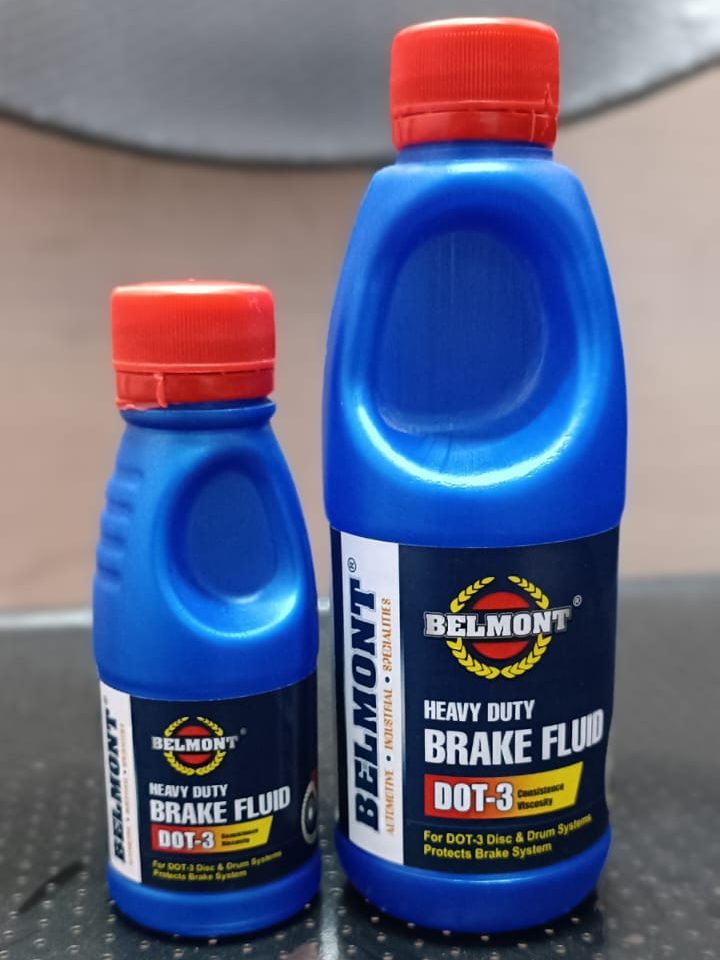
Meta Title:
How Often Should You Change the Brake Fluid in Your Motorcycle? | Belmont Lubricants
Brake fluid maintenance is often overlooked by riders, yet it is one of the most crucial aspects of motorcycle safety. Your motorcycle’s brake system depends on brake fluid to transmit force and ensure reliable stopping performance. But over time, brake fluid degrades—impacting performance, increasing stopping distance, and putting your safety at risk.
In this guide, we’ll explore how often you should change the brake fluid in your motorcycle, what signs to look for, and how proper fluid maintenance can keep your ride smooth and safe.
If you’re a motorcycle enthusiast or a daily commuter, understanding the brake fluid change interval can save you from costly repairs and accidents.
Why Brake Fluid Maintenance is Important
Brake fluid is hydraulic fluid that transfers force from the brake lever or pedal to the calipers, enabling your motorcycle to stop. It operates under high pressure and heat, especially during frequent or aggressive braking.
Over time, brake fluid becomes contaminated with moisture, which reduces its boiling point and effectiveness. This can cause a condition known as “brake fade”, where the brakes become less responsive or even fail under heavy use.
How Often Should You Change Brake Fluid in a Motorcycle?
Most experts recommend changing your motorcycle’s brake fluid every 1 to 2 years to maintain optimal braking performance. However, this interval may vary depending on the following factors:
1. Riding Conditions
- Daily riding or city commuting exposes the braking system to regular use, requiring annual replacement.
- Sport or high-speed riding involves frequent hard braking, increasing the need for more frequent fluid changes.
2. Type of Brake Fluid Used
- DOT 3 brake fluid absorbs moisture faster and may need replacement every 12 months.
- DOT 4 and DOT 5.1 offer higher boiling points but still require changes every 1 to 2 years.
3. Climate Conditions
- Humid regions like parts of India cause faster moisture absorption, leading to quicker degradation of brake fluid.
4. Manufacturer’s Recommendation
Always check your motorcycle owner’s manual for the OEM-specified interval and fluid type.
Signs That It’s Time to Change Brake Fluid
Ignoring brake fluid change can result in compromised safety and poor brake performance. Watch out for these common warning signs that indicate your brake fluid may need changing:
- Spongy or soft brake lever
- Brake warning light on the dashboard (in some motorcycles)
- Discolored brake fluid (dark brown or black)
- Burning smell during braking
- Reduced braking efficiency or longer stopping distance
To explore the detailed symptoms of deteriorating brake fluid, read our expert blog:
Symptoms of Bad Brake Fluid in Vehicles – Expert Guide 2025
How to Check Your Motorcycle’s Brake Fluid
Regular inspection is key. Follow these steps:
- Position your motorcycle on a flat, stable surface using the center stand for proper balance.
- Locate the brake fluid reservoir, usually near the handlebar for the front brake.
- Check the fluid level through the reservoir window.
- Observe the color—clear to light yellow is good; dark brown means it’s time to replace.
Avoid opening the reservoir unless you’re changing the fluid, as exposure to air can contaminate it.
What Happens If You Don’t Change It?
Failing to maintain your brake fluid can result in several serious problems:
- Corrosion in brake lines and calipers
- Reduced stopping power due to vapor lock or brake fade
- Increased risk of accidents during emergency braking
- Expensive repair costs or brake system overhaul
If you’re unsure when you last changed your fluid, it’s better to change it now than to risk brake failure.
Can You Change Motorcycle Brake Fluid Yourself?
Yes, changing your brake fluid can be a DIY task with the right tools:
- Brake fluid (as specified by your manufacturer)
- Bleeder kit or pipe
- Wrench
- Clean rag and gloves
However, if you’re unfamiliar with brake systems, it’s wise to have a trained mechanic handle the job to avoid air bubbles or improper bleeding.
For a complete guide on when to change and how to handle brake oil in bikes, read:
When to Change Brake Oil in a Bike – Complete Guide for Riders
Best Brake Fluids for Motorcycles in India

At Belmont Lubricants, we offer high-quality DOT 3, DOT 4, and DOT 5.1 brake fluids specifically designed for Indian roads and climate. Our brake fluids meet international standards, resist vapor lock, and offer consistent performance under varying temperatures.
If you’re looking for reliable and OEM-compatible brake fluids, explore our range today.
Comparison Table: DOT 3 vs DOT 4 vs DOT 5.1
| Property | DOT 3 | DOT 4 | DOT 5.1 |
|---|---|---|---|
| Boiling Point (Dry) | 205°C | 230°C | 260°C |
| Moisture Absorption | High | Moderate | Low |
| Brake Performance | Basic | High | Very High |
| Replacement Frequency | 12 months | 1–2 years | 2 years |
| Ideal For | Commuter Bikes | Sports/Mid-range | ABS-Equipped Bikes |
FAQs: Motorcycle Brake Fluid Change
Q1: How often should you change the brake fluid in your motorcycle?
Answer: Typically every 1 to 2 years, depending on usage, fluid type, and riding conditions.
Q2: What brake fluid is best for Indian motorcycles?
Answer: DOT 4 is commonly recommended for most Indian bikes due to its high boiling point and resistance to moisture.
Q3: How do I know if my brake fluid is bad?
Answer: Dark color, spongy brake feel, or decreased braking efficiency are signs that your brake fluid needs replacement.
Q4: Is it safe to mix different types of brake fluid?
Answer: It’s not recommended. Always use the brake fluid type specified for your motorcycle. Mixing different DOT grades—unless explicitly compatible, like DOT 3 with DOT 4—can reduce performance and potentially damage your braking system.
Q5: Does brake fluid expire if unused?
Answer: Yes, once opened, brake fluid absorbs moisture even if not in use. It’s recommended to use opened bottles within 6–12 months.
Final Thoughts
Changing your motorcycle brake fluid on time is not just maintenance—it’s a critical safety measure. Whether you ride daily or occasionally, sticking to a regular fluid change schedule ensures smooth braking, responsive performance, and peace of mind on the road.
Trust Belmont Lubricants for superior brake fluids that match your motorcycle’s needs. Browse our catalog and find the perfect fit for your two-wheeler.
